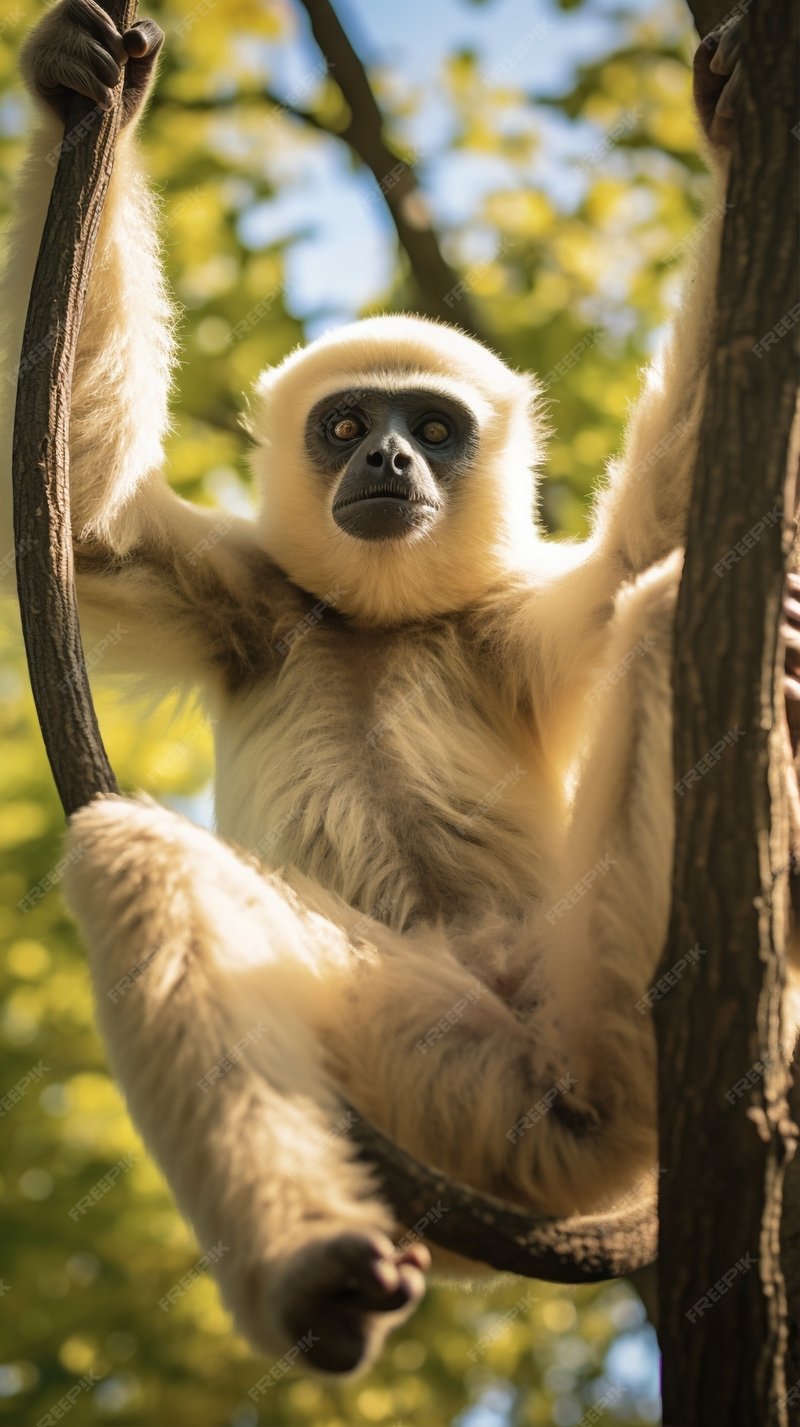
Gibbons are fascinating creatures that belong to the family Hylobatidae. They live mostly in the tropical forests of Southeast Asia and are known for their loud calls and impressive swinging abilities. Despite their cuddly appearance, there are many factors to consider when discussing their potential danger to humans. So, can gibbons truly be dangerous? Let’s explore that question together.
Understanding Gibbons and Their Behavior
Gibbons are unique primates that are often mistaken for monkeys, but they actually belong to a different group called apes. They are smaller than many other apes, with most species weighing less than 25 pounds. What sets them apart is their amazing ability to swing from branch to branch. It’s like watching an Olympic gymnast in action!
Their social structure is intriguing, too. Gibbons usually live in small family groups consisting of a mated pair and their offspring. These tight-knit families communicate with loud calls that echo through their forest homes. This vocalization isn’t just for show; it helps them defend their territory and bond with one another. However, you might be wondering if their vocal nature could signal aggression toward humans.
Are Gibbons Aggressive?
Here’s the thing: gibbons are not naturally aggressive creatures. They tend to avoid confrontation and prefer to flee rather than fight. But, like many animals, their behavior can change if they feel threatened or cornered. If a gibbon perceives a human as a danger to its family, it may react defensively, which could include vocalizations, displays of aggression, or even physical attacks in rare cases.
It’s also crucial to understand that gibbons are wild animals. They have instincts and behaviors that can be unpredictable. If someone approaches them too closely or disrupts their territory, there’s a chance they might retaliate. While they don’t usually seek out conflicts with humans, it’s a good idea to respect their space.
Human Interaction and Gibbon Safety
Most encounters between humans and gibbons occur in their natural habitats or when they are kept in zoos and sanctuaries. Generally, gibbons are shy and prefer to keep their distance. But if you find yourself in an area where gibbons live, your safety primarily depends on how you interact with them.
It’s important to remember that feeding or attempting to touch wild gibbons can lead to aggressive behavior. These animals don’t see humans as friends; rather, they may view them as threats. If you respect their environment and observe them from a distance, the chances of a dangerous encounter decrease significantly.
What to Do if You Encounter a Gibbon
If you ever find yourself face-to-face with a gibbon, here are some simple guidelines to follow:
- Stay Calm: Don’t panic or make sudden movements. Gibbons can sense anxiety.
- Keep Distance: Maintain a safe distance and don’t approach them.
- Avoid Feeding: Resist the urge to feed them, as it can cause aggressive behavior.
- Observe Quietly: Enjoy watching them from afar. It can be a beautiful experience!
By sticking to these steps, you can appreciate these amazing creatures without putting yourself at risk.
Gibbons in Captivity: Safety Concerns
When gibbons are kept in captivity, whether in zoos or as pets (which is not recommended), their behavior can change dramatically. Many gibbons in captivity may exhibit stress or frustration due to limited space and social interaction. This can make them more irritable or aggressive than their wild counterparts.
In places like zoos, trained professionals manage interactions with gibbons. They understand how to read the animals’ body language and can take precautions to ensure both human and animal safety. When gibbons feel safe and enriched, they’re less likely to show aggressive behaviors.
The Ethical Consideration of Keeping Gibbons as Pets
You might be thinking about how cute gibbons are, which can make the idea of having one as a pet tempting. However, keeping a gibbon as a pet is fraught with ethical concerns and practical challenges. Gibbons require complex social structures, ample space, and specific diets to thrive.
Trying to replicate their natural habitat is nearly impossible for an average person. The result is often a stressed animal that might display dangerous behaviors as a result of its unhappiness. Supporting conservation efforts and visiting gibbons in accredited sanctuaries or zoos is a far better choice for both the animals and for you.
So, can gibbons be dangerous to humans? In most cases, the answer is no, but like any wild animal, they have the potential to be aggressive if they feel threatened. Educating ourselves about these creatures, respecting their habitats, and understanding their behavior can go a long way in fostering a peaceful coexistence.
Ultimately, gibbons are incredible animals that deserve our respect and protection. By appreciating them from a safe distance and advocating for their conservation, we can enjoy the beauty of these unique primates without putting ourselves or them at risk. Let’s continue to admire their acrobatics and calls—just from a respectful distance.

